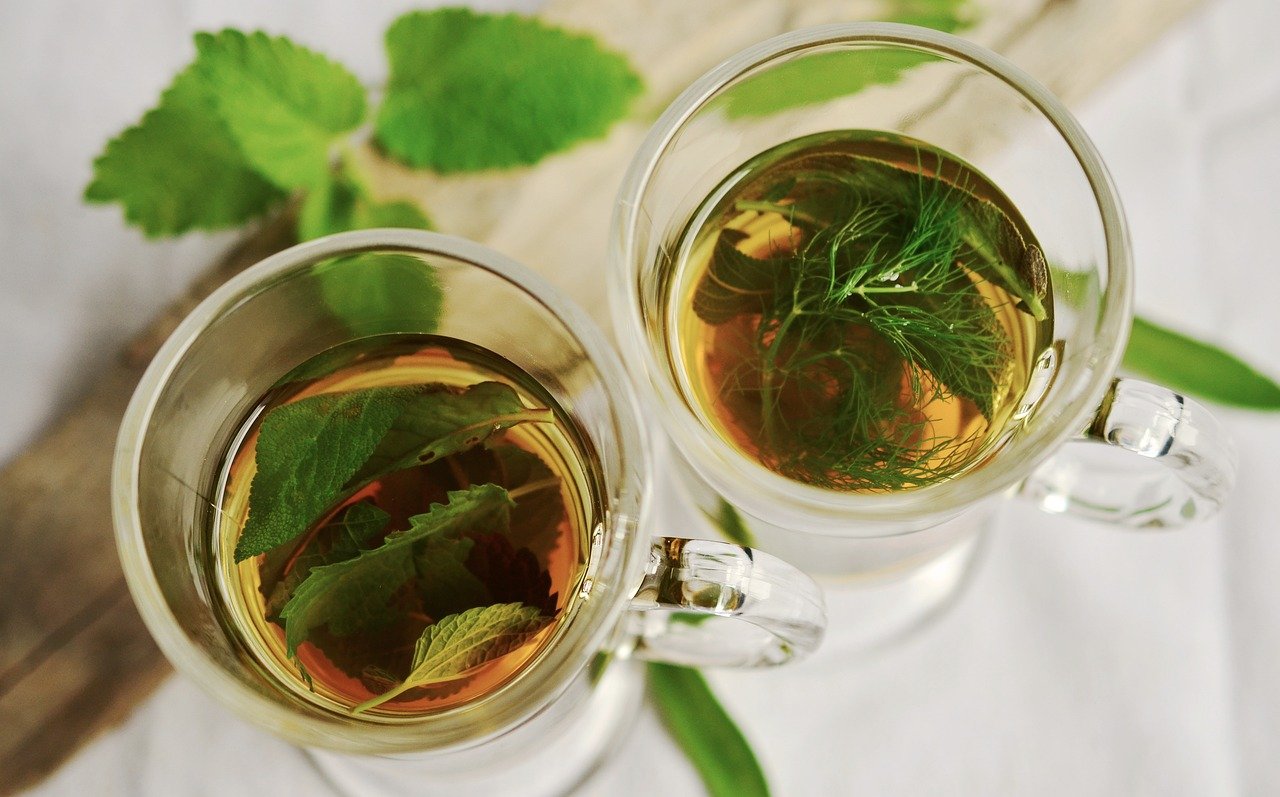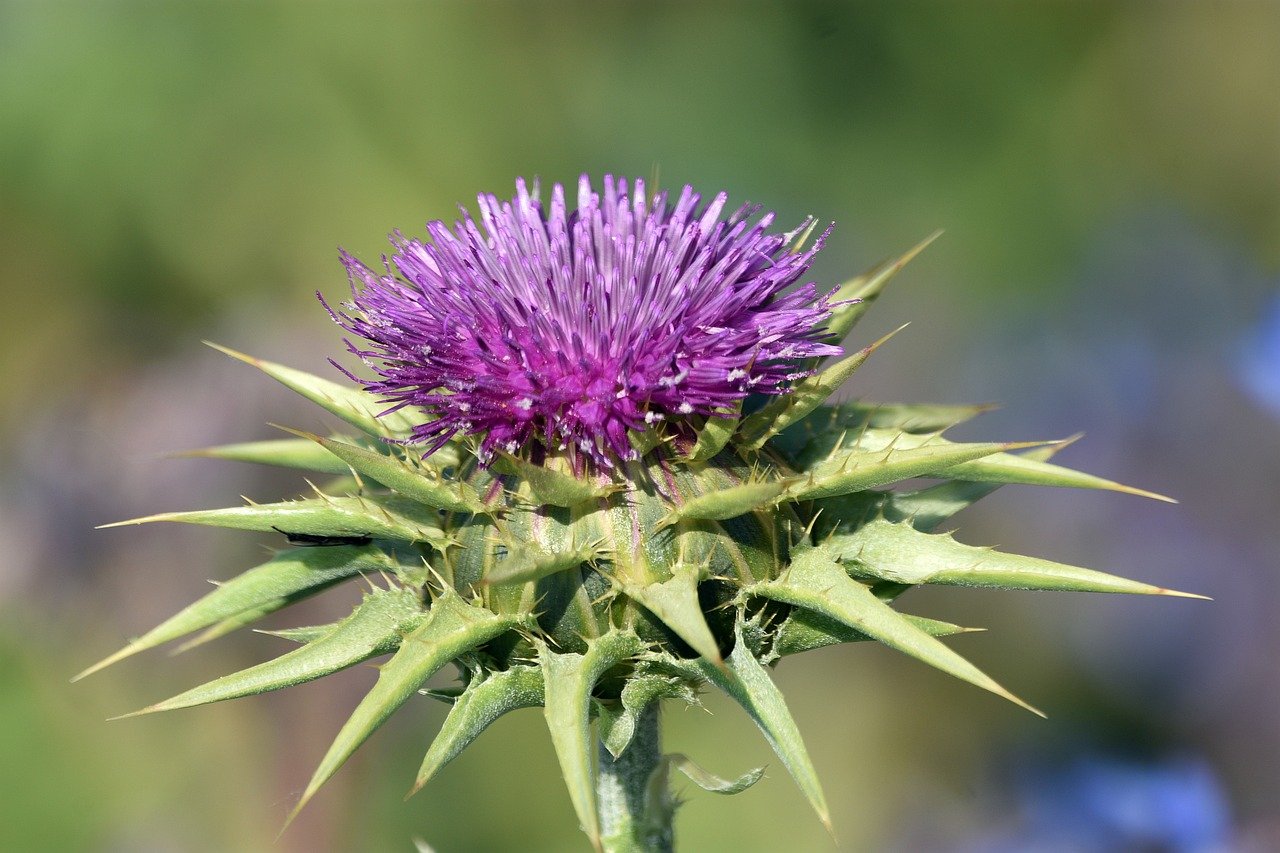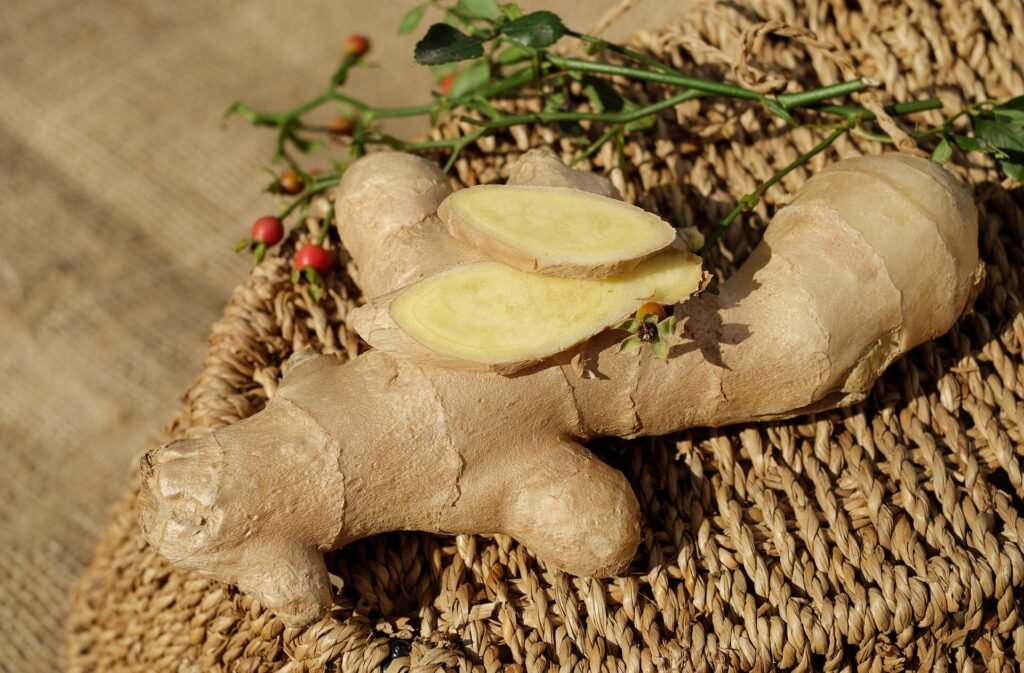Are you tired of relying on synthetic drugs to manage your health? Have you ever considered the natural healing powers of medicinal plants? From reducing inflammation to boosting immunity, these plants have been used for centuries to improve wellbeing. In this blog post, we’ll introduce you to the top 10 medicinal plants that can help you achieve optimal health and vitality. Get ready to discover a whole new world of plant-based remedies that can transform your life!
Introduction to Medicinal Plants and Their Benefits
Medicinal plants have been used for centuries to promote health and wellbeing. They are natural remedies that can help prevent or treat various ailments, ranging from minor headaches to more serious conditions like cancer. The use of herbs as medicine is gaining popularity as people seek out alternative treatments with fewer side effects than synthetic drugs.
Studies have shown that the benefits of medicinal plants come from their active compounds, which can have a range of biological effects on the body. These compounds often work synergistically with each other, enhancing their effectiveness when used in combination.
The key advantage of using herbal remedies is that they offer a holistic approach to healing, addressing not just immediate symptoms but also underlying imbalances in the body’s systems. This makes them an excellent tool for maintaining overall health and preventing disease.
In this article, we’ll explore 10 of the most effective medicinal plants you can add to your wellness routine today!
Top 10 Most Effective Medicinal Plants for Better Health
Nature has provided us with a wealth of medicinal plants that have been used for centuries to treat various ailments. Here are the top 10 most effective medicinal plants identified through scientific research:
- Turmeric: This bright yellow spice contains curcumin, a powerful anti-inflammatory compound that can alleviate pain and inflammation.Turmeric is a popular spice that has been used in traditional medicine for centuries. It contains an active compound called curcumin, which has anti-inflammatory and antioxidant properties. Turmeric has been used to treat a variety of conditions, including arthritis, digestive issues, and skin problems.
- Ginger: Known for its digestive benefits, ginger also possesses anti-inflammatory properties making it an effective remedy for sore throats and headaches. Ginger is another spice that has been used in traditional medicine for its anti-inflammatory and digestive benefits. It contains compounds called gingerols and shogaols, which have been shown to relieve nausea, reduce inflammation, and improve circulation.
- Echinacea: This flower is commonly used as a natural cold fighter due to its immune-boosting properties. Echinacea is a flowering plant that has been used in traditional medicine to boost the immune system and fight infections. It contains compounds called echinacosides and alkamides, which have been shown to stimulate the immune system and reduce inflammation.
- Chamomile: Often consumed as tea, chamomile has calming effects on both the mind and body and helps to improve sleep quality. Chamomile is a herb that has been used for centuries to calm the nerves and promote relaxation. It contains an active compound called apigenin, which has been shown to have anti-anxiety and anti-inflammatory effects.
- Aloe Vera: Widely known for its skin-healing abilities, aloe vera can also help relieve constipation and soothe digestive issues. Aloe vera is a succulent plant that has been used for centuries to treat wounds and skin conditions. It contains compounds called polysaccharides, which have been shown to promote wound healing and reduce inflammation.
- Lavender: The floral scent of lavender has been shown to reduce anxiety levels while promoting relaxation and restful sleep. Lavender is a flowering plant that has been used for its calming and relaxing properties. It contains an essential oil called linalool, which has been shown to reduce anxiety and improve sleep.
- Peppermint: A natural decongestant, peppermint has antispasmodic properties* that help soothe stuffed sinuses and other respiratory woes.Peppermint is a herb that has been used for its digestive benefits. It contains an essential oil called menthol, which has been shown to relieve symptoms of irritable bowel syndrome (IBS) and promote digestion.
- Garlic: Not only does garlic add flavor to dishes, but it’s also packed with antioxidants that support heart health while reducing cholesterol levels in the blood. Garlic is a bulbous plant that has been used for centuries for its antibacterial and antifungal properties. It contains an active compound called allicin, which has been shown to have a range of health benefits, including reducing blood pressure and cholesterol levels.
- Rosemary: Another herb commonly added to food, rosemary’s antimicrobial properties make it an excellent remedy against infections like colds or flu-like symptoms. Rosemary is a herb that has been used for centuries for its anti-inflammatory and antioxidant properties. It contains compounds called rosmarinic acid and carnosic acid, which have been shown to have a range of health benefits, including reducing inflammation and improving memory.
- Milk Thistle: Used traditionally by herbalists’ milk thistle shows promising results when it comes to liver wellness by detoxifying harmful substances from your bloodstream thus protecting your liver cells. Milk thistle is a flowering plant that has been used for centuries to treat liver and gallbladder problems. It contains a flavonoid called silymarin, which has been shown to have antioxidant and anti-inflammatory properties and to support liver health.
Consider adding these herbs into your daily routine under the guidance of a healthcare professional or an herbalist to experience the benefits they offer.

How to Incorporate These Herbs into Your Daily Routine
Brew a Cup: Incorporating Medicinal Plants into Your Daily Tea Ritual
One of the easiest and most enjoyable ways to incorporate medicinal plants into your daily routine is by brewing them in teas. Choose one or more of the top 10 medicinal plants that align with your health goals, such as chamomile for relaxation or ginger for digestion. Add a teaspoon of dried herbs to hot water, steep for 10-15 minutes and enjoy. You can also experiment with creating your own blends based on taste preferences and desired benefits. Don’t be afraid to get creative! Not only will you reap the medicinal benefits, but enjoying a cup of tea can also provide a soothing moment in an otherwise busy day.
Sprinkle Some Magic: Adding Herbs to Your Cooking and Baking
Adding herbs to your cooking and baking is a simple and delicious way to incorporate medicinal plants into your daily routine. Rosemary and thyme are two of the most versatile herbs that can be used in a variety of dishes. Sprinkle some fresh rosemary on roasted vegetables or add dried thyme to soups and stews for an extra boost of antioxidants and anti-inflammatory properties. Turmeric is another powerful herb that can be added to curries, smoothies, or even baked goods for its anti-inflammatory and immune-boosting benefits. Experiment with different herbs in your cooking and baking to discover new flavors and health benefits.
Get Creative: DIY Herbal Remedies for Everyday Ailments
There are many benefits to incorporating herbal remedies into your daily routine, and it’s easier than you might think. DIY herbal remedies can be a fun way to experiment with different plants and create personalized treatments for common ailments. For example, chamomile tea is great for promoting relaxation and easing anxiety while ginger root can help relieve nausea and indigestion. Mixing honey with cinnamon can help soothe sore throats, while peppermint oil can offer relief from headaches when applied topically.
By getting creative with the top 10 medicinal plants, you can discover new ways of improving your wellbeing naturally. Plus, making your own remedies ensures that you know exactly what goes into them – no hidden chemicals or preservatives required!
Soothing Scents: Using Essential Oils and Aromatherapy for Wellness
Essential oils and aromatherapy are powerful tools for promoting wellness. Many of the top 10 medicinal plants on this list can also be used in their essential oil form to provide therapeutic benefits. For instance, lavender essential oil is known for its calming properties. While peppermint essential oil can help with headaches and digestive issues. You can add a few drops of your chosen essential oil to a diffuser or mix it with a carrier oil like coconut or jojoba for topical use. Incorporating these soothing scents into your daily routine will not only improve your well-being but also create a relaxing environment at home or work.

Preparing Herbal Remedies at Home: Tips and Tricks
Choosing the Right Plants for Your Needs: A Guide to Medicinal Herbs
When it comes to preparing herbal remedies at home, it’s important to choose the right plants for your needs. Researching and identifying the medicinal properties of each plant is crucial in ensuring that you are using the right herb for your specific health concern. Some herbs may have overlapping benefits, but others may be more effective for certain conditions. It’s also important to consider the safety of each herb and any possible interactions with medications you may be taking. Consulting with a qualified herbalist or healthcare provider can help you make informed decisions about which medicinal plants to use for your wellbeing.
Harvesting and Storing Medicinal Plants: Best Practices for Maximum Potency
To ensure maximum potency and efficacy of medicinal plants, it’s important to harvest them at the right time. Generally, it’s best to pick herbs early in the morning when their essential oils are most concentrated. When harvesting, choose healthy specimens that are free from pest damage or disease.
Once you’ve harvested your herbs, proper storage is key. Drying is one of the easiest and most effective ways to preserve medicinal plants. Spread out your herbs in a warm, dry area with good air circulation until they are completely dry. Then store them in an airtight container away from direct sunlight and heat.
Remember to label all containers with the name of the plant and date of harvest for future reference. With these tips for harvesting and storing medicinal plants properly, you can maximize their health benefits for yourself and your loved ones!
Simple DIY Herbal Remedies: Recipes and Techniques for Home Preparation
Here are some simple DIY herbal remedies that you can easily prepare at home using the top 10 medicinal plants. For immune-boosting tea, combine equal parts echinacea, elderberry, and ginger root in a tea infuser and steep in hot water for 5-10 minutes. For pain relief salve, melt beeswax and coconut oil in a double boiler, then add dried arnica flowers and comfrey leaves. Strain the mixture and pour into small jars to cool. Rub onto sore muscles or joints as needed. These are just a few examples of how you can incorporate these powerful herbs into your daily routine for better health and wellbeing.
Precautions and Side Effects: What You Need to Know Before Using Medicinal Plants
Before using any medicinal plants, it’s important to do your research and understand any potential precautions and side effects. While these plants can offer numerous health benefits. They can also interact with medications or cause adverse reactions in some individuals. Always consult with a healthcare professional before incorporating any new herbs into your routine, especially if you have pre-existing medical conditions or are taking prescription medications. Additionally, be sure to follow dosage instructions carefully and avoid overuse. With proper care and attention, medicinal plants can be a valuable addition to your wellness routine.

What to Look for When Buying or Harvesting Medicinal Plants
When buying or harvesting medicinal plants, it’s important to be aware of the quality and source of the herbs. Look for reputable suppliers who can provide information on where and how the plants were grown, harvested, and processed. It’s also important to be aware of any regulations or restrictions on harvesting certain plants in your area.
When buying dried herbs, look for those that are still vibrant in color and have a strong aroma. Avoid herbs that are discolored or have a musty smell, as this could indicate mold or other contaminants.
If you’re harvesting your own herbs. Make sure to do so at the right time of year and in the right conditions. Research the specific plant you’re harvesting to ensure you’re using the correct part of the plant and that you’re not damaging the plant or its ecosystem.
Overall, being informed about the quality and source of your medicinal plants is key to ensuring their effectiveness and safety.
Common Misconceptions About Herbal Medicine Debunked
There are several misconceptions about herbal medicine that are probably holding you back from trying them. One of the most common misconceptions is that herbal remedies do not have any scientific basis or proof of effectiveness. However, research has shown that many herbs possess powerful medicinal properties that can help manage and treat various health conditions.
Another misconception is that natural means safe. While many herbs may be safe for consumption, some may have adverse side effects when taken in large doses or combined with certain medications. It’s important to consult with a healthcare professional before using any new herb as part of your wellness routine.
Some people also believe that herbal medicine takes too long to work compared to prescription drugs. This isn’t always true. Many herbal remedies can provide fast relief for common ailments like headaches, sore throats or digestive issues.
Lastly, there is a myth surrounding the idea that if it’s ‘natural,’ then it must be good for everyone. Different people have unique biochemistry and genetics which means each individual responds differently to different herbs and supplements.
Overall, educating yourself on the appropriate use of medicinal plants allows you to make informed decisions. About your health care regime and prevent misinformation from impeding upon achieving optimal wellbeing.
Possible Side Effects of Using Medicinal Herbs
While medicinal plants can offer numerous health benefits, it’s important to note that they can also have potential side effects. Just like any other medication, herbal remedies can interact with other drugs or cause adverse reactions in some individuals.
For example, St. John’s Wort is known for its antidepressant properties It can also decrease the effectiveness of birth control pills and other medications. Echinacea is commonly used to boost the immune system, but it may cause allergic reactions in some people.
It’s crucial to consult with a healthcare professional before using any herbal remedies. Especially if you’re pregnant or nursing, have a chronic medical condition, or are taking prescription medications. Be sure to disclose all the herbs and supplements you’re taking to your doctor.
In addition, always follow the recommended dosage and avoid combining different herbs without professional guidance. By being informed and cautious, you can safely enjoy the benefits of nature’s pharmacy.

Are the Top 10 Medicinal Plants also suitable for a Medicinal Garden?
Yes, the top 10 medicinal plants are ideal selections for a medicinal garden. The diverse range of medicinal properties in these plants makes them valuable for any medicinal garden. This selection offers a unique opportunity to explore the world of medicinal garden plants discovery.
Conclusion: Empowering Yourself Through Nature’s Pharmacy
Empowering Yourself Through Nature’s Pharmacy
It is important to remember that while these herbs are beneficial, they should not replace proper medical care. It is always wise to consult with a healthcare professional before starting any new herbal regimen. Especially if you have pre-existing conditions or are taking medications.
That being said, by educating yourself on the uses and benefits of medicinal plants. You can make informed decisions about your health and find ways to support your body naturally. So go ahead and explore nature’s pharmacy – it just may surprise you with its healing powers.
In conclusion, medicinal plants have been used by humans for centuries to treat various ailments and promote overall wellness. As we become more reliant on modern medicine, it’s crucial not to overlook the potential benefits of natural remedies. By incorporating the top 10 medicinal plants into your daily routine and preparing homemade herbal remedies. You can empower yourself with nature’s pharmacy. Remember to always do your research. Before using any new herb and consult with a healthcare professional if you have any concerns or experience side effects. With this knowledge in hand, you’re ready to take charge of your health and wellbeing in a whole new way!

